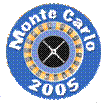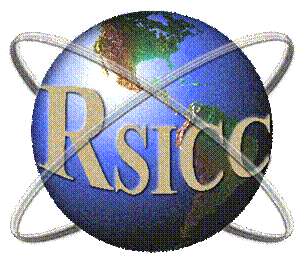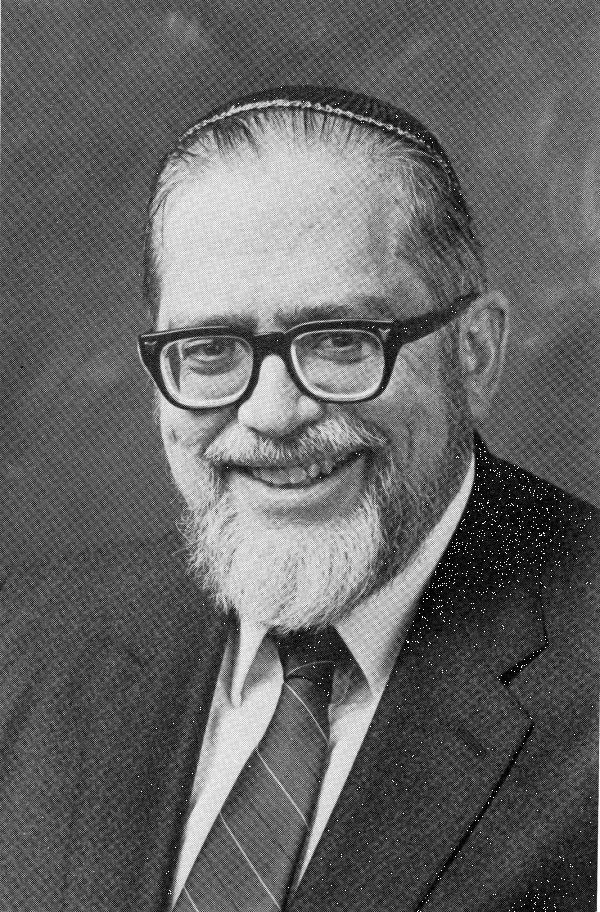|
MCNP
Introductory Class
A four-day introductory class for the MCNP (Monte Carlo N-Particle) transport code
will
be held at LANL February 22-25, 2005.
This class will be taught by the team who develops and
maintains MCNP.
Introductory classes are for people
who have little or no experience with MCNP. The
classes survey the features of MCNP so the beginning user will be
exposed to the capabilities
of the program, and will have hands-on experience at running the code
to solve rudimentary
problems. Course topics include Basic Geometry, Source Definitions,
Output (Tallies)
Specification and Interpretation, Advanced Geometry (repeated
structures specification),
Variance Reduction Techniques, Statistical Analysis, Criticality,
Plotting of Geometry, Tallies,
and Particle Tracks, and Neutron/Photon/Electron Physics.
Costs:
Cost for the class is $1,800. There is a $300 discount if
payment is received by
February 14th, 2004. Radiation Safety Information Computational Center
(RSICC) provides the
code and data package and documentation after the class is over at
their lowest tier price.
The class
fee includes a notebook with all class viewgraphs (over 300) and
handouts.
Dinner the first evening is included as part of your registration fee
and snacks and refreshments
are provided during class breaks. Lodging will be available for roughly
$75 per night.
Information will be sent by follow-up letter or email when we receive
your registration
information.
All
classes provide interactive computer learning. Time will be available
to discuss
individual questions and problems with MCNP experts. To register for
the class, go to http://www-xdiv.lanl.gov/x5/MCNP/classinformation.html.
MCNPX
Workshops
Lead Teachers: Drs. John Hendricks, Gregg
McKinney, Laurie Waters
Organizer:
HQC Professional Services Contact:
bill@mcnpxworkshops.com
More
Information: http://mcnpxworkshops.com
MCNPX homepage:
http://mcnpx.lanl.gov
|
. 28-Mar. 4
|
Intermediate
|
Mol,
Belgium
|
|
June 13-17
|
Introductory
|
Santa Fe,
NM
|
|
Aug. 1-5
|
Introductory
|
Seoul,
Korea
|
|
Sept. 19-23
|
Intermediate
|
Boston or
D.C.
|
|
Nov. 7-11
|
Introductory
|
Santa Fe,
NM
|
MCNPX
is the LANL all-particle, all-energy (eV-TeV) Monte Carlo transport
code based
on MCNP4C, LAHET, CEM, etc. MCNPX has been in active development since
1995 and is
sponsored by the particle accelerator community. It has now become an
accepted tool for a
broad range of applications by nuclear engineers, physicists, and
scientists. The MCNPX development effort has expanded the use of the
Los Alamos tools to applications such as APT,
waste transmutation, accelerator shielding and health physics, particle
beam cancer therapy,
space shielding and cosmic ray analysis, single event effects in
semiconductors, radiography,
and more detailed analysis of the effects of light and heavy ions in
matter. In addition, the entire
functionality of MCNP4C is retained. New variance reduction and data
analysis techniques,
many adapted from high-energy accelerator methodologies, have also been
added, such as the
extensive “mesh tally” capability which allows up to 3-d plotting of
particle tracks, fluence and
fluence-derived quantities, energy deposition, next event estimator
generation contributions and
particle sources.
The
workshops include hands-on instruction, generally on PC Windows
machines. Subject to participant export approval for the MCNPX beta
test team, participants will be able to
access the Fortran-90 version of MCNPX 2.4, the LA150 (150 MeV)
cross-section data for over
40 isotopes for incident neutrons and protons and 12 for photonuclear
interactions, and a notebook of viewgraphs.
Follow-up
consultation for class participants will be provided.
The
classes are taught by experienced MCNPX code developers and
instructors. More
information on code versions and capabilities is available at MCNPX
Workshops web site http://mcnpxworkshops.com.
Monte Carlo 2005 Topical
Meeting

Monte
Carlo 2005 will be held April 17-21,
2005, (Sunday-Thursday). The
theme of the conference is “The Monte Carlo Method: Versatility
Unbounded in A
Dynamic Computing World.”
The
conference site is the Chattanooga Marriott and Convention Center in
Chattanooga, Tennessee. The conference will be hosted by the American
Nuclear
Society (ANS) Oak Ridge/Knoxville Section, with ANS Radiation
Protection and
Shielding Division (RPSD) as the sponsoring division and Mathematics
and Computations Division (MCD) as a co-sponsor. Co-sponsors also
include Oak Ridge National Laboratory
(ORNL), Radiation Safety Information
Computational Center (RSICC) and the Organization for
Economic Cooperation and Development (OECD) Nuclear Energy Agency Data
Bank
(NEADB).
The Monte
Carlo method and its applications have been frequently addressed at
several
major conferences and workshops organized in recent years in the area
of nuclear applications. Monte Carlo topics have included radiation
shielding, radiation physics, medical physics, and
high energy physics. Significant developments have taken place in
computational and data
issues, resulting in state-of-the-art computer codes and tools. Monte
Carlo 2005 is the next in a
series devoted to the topic, following Monte Carlo 2000, which was held
in Lisbon, Portugal, in
October 2000.
Conference
topics will include: Methods Advancements (Physics) (proton transport,
neutron transport, gamma transport, electron transport, heavy ion
transport); Nuclear Data
Advancements (proton transport, neutron transport, gamma transport,
electron transport, heavy
ion transport); Mathematical and Computational Advances (experiments
& benchmarks,
mathematical advances, computational advances, visualization);
Applications (reactor, medical,
accelerator, neutron science, dosimetry, shielding, fuel cycle, waste
management, space &
aviation, fusion, criticality safety, non-nuclear applications).
The
website is http://MonteCarlo2005.org. Full papers are due January 21, 2005. For
information contact Bernadette Kirk (kirkbl@ornl.gov,
865-574-6176), General Chair, or Jeff
Johnson (johnsonjo@ornl.gov,
865-574-5262), Technical Chair.
Using
MCNP5 for Medical Physics Applications
Sponsor: Computational Medical Physics
Working Group
Cost: Free
Sunday, April 17, 2005, 1-5PM at the Monte
Carlo 2005 Conference at the Chattanooga
Convention Center, Chattanooga, Tennessee. (http://montecarlo2005.org)
“Using
MCNP5 for Medical Physics Applications,” by Tim Goorley of the MCNP
Development Team, X-5, Los Alamos National Laboratory, and Dick Olsher
of the HSR - 4, Los
Alamos National Laboratory.
Monte
Carlo techniques are increasingly popular in many medical physics
applications. This half-day tutorial focuses on how to use new and old
MCNP5 features for neutron, photon
and electron transport problems. The tutorial will include handouts and
some demonstrations
by the instructor, but not hands-on computer activities for the student
The following is a draft of
the topics which will be covered:
1)
Overview of new MCNP5 features
a)
Mesh tallies,
b)
Photon Doppler Broadening,
c)
> 2.1 billion histories,
d)
Lattice tally enhancements
2)
Geometries and Modelling
a)
MIRD Phantoms,
b)
CT_based geometries
3) Sources
4) Tallies
a)
Calculating dose w/ different tallies,
b)
Flux to Kerma factors (DE DF cards),
c)
Calculating reaction rates
5) Misc
a)
S(alpha, beta) neutron scattering treatment,
b)
Simple variance reduction,
c)
Benchmarking Studies - QUADOS,
d)
using PTRAC file for coincident counting.
2005
International Congress on Advances in Nuclear Power Plants
(2005 ICAPP)
The 2005 International Congress on Advances
in Nuclear Power Plants will be held from
May 15-19, 2005, in Seoul, Korea.
There is no doubt that continuing support and
interest will be a crucial element for the success of the first ICAPP
held in Asia.
The ICAPP
has grown in stature since the first congress was held in 2002 to share
ideas and visions for advances in nuclear power plants among operators,
researchers and
scholars. The 2005 ICAPP will attract the attention of the world's
nuclear experts with many
outstanding presentations of new developments and approaches in various
studies and
industrial projects. Please take the opportunity to share the results
of your latest studies at the
2005 ICAPP. To ensure a successful congress, the 2005 ICAPP will
consist of invited plenary
sessions and topical technical sessions, as follows:
1. Water-Cooled
Reactor Programs and Issues
2. High
Temperature Gas-Cooled Reactors,
3. Long-Term
Reactor Programs and Strategies,
4. Operations,
Performance and Reliability Management,
5. Plant
Safety Assessment and Regulatory Issues,
6. Thermal
Hydraulic Analysis and Testing,
7. Core
and Fuel Cycle Concepts and Experiments,
8. Materials
and Structural Issues,
9. Nuclear
Energy and Sustainability including Hydrogen, Desalination and Other
Applications, and
10. Near-Term
Deployment.
Visit the
website http://www.icapp2005.org to find out more about the 2005 ICAPP in
Seoul.
Electron-Photon Transport
Modelling with PENELOPE-2005 -
Physics, Code Structure and Operation
PENELOPE
is being updated to include several new features and an updated
database.
An advanced training course/workshop entitled “Electron-Photon
Transport Modelling with
PENELOPE-2005 - Physics, Code Structure and Operation” is scheduled for
4–7 July 2005, at
the Facultat de Fisica (ECM), Universitat de Barcelona, Diagonal 647,
08028 BARCELONA,
Spain.
This
course is addressed to researchers in radiation physics and its
applications. The
main objective is to provide the participants with a detailed
description of PENELOPE-2005 with
an ample perspective on Monte Carlo methods for simulation of
electron/photon transport. The
reliability of the interaction models and the accuracy of the numerical
methods and
approximations implemented in the code will be discussed. Examples of
simulation results and
benchmark comparisons with experiment will be presented. The course
will include practical
sessions on the use of the generic main programs, PENCYL (cylindrical
geometries) and
PENMAIN (quadric geometries), and on the design of the main program for
specific
applications.
Accommodation
at the facilities of the University will be available and the weather
is
known to be very pleasant then. The deadline for registration is 30 April 2005. Links to the
syllabus and registration form may be found at http://www.nea.fr/html/dbprog/Newsletter/Dec2004.htm#training.
International
Topical Meeting on Mathematics and Computation,
Supercomputing, Reactor Physics and Nuclear and Biological Applications
The International Topical Meeting on
Mathematics and Computation,
Supercomputing, Reactor Physics and Nuclear and Biological Applications
will be held at the
‘Palais des Papes,’ Avignon, France, September
12-15, 2005.
The
meeting offers an environment for interdisciplinary exchange among
research in the
nuclear field and comprises 19 General Technical sessions and 13
Invited Technical sessions.
Details on the sessions and on the organization of the meeting are
given at the web site: http://mcavignon2005.cea.fr/.
Papers are
solicited in all areas of computational and mathematical methods and
related disciplines including reactor physics, material sciences,
shielding,
fluid-dynamics, medical and biological applications, environmental
sciences,
fundamental mathematics and benchmarking.
We are now
less than one year from the meeting dates and our web has been
opened for the submission of extended summaries (1000 words < 1500
words). The
deadline for summary submission is January 15, 2005.
Instructions
on summary submission are given in the web pages under the
‘Authors’ button.
Practical
MCNP for the Health Physicist, Medical Physicist, and
Rad Engineer
DATES: June
6 -10, 2005 (4.5 days)
FEE:
$1,450 per person
PLACE: The
MESA Complex, Room 130, University of New Mexico-Los Alamos
Campus
Monte
Carlo calculations are ideally suited to solving a variety of problems
in radiation
protection and dosimetry. This course is aimed at the health physicist,
medical physicist, and
rad engineer with no prior experience with Monte Carlo techniques. The
focus is almost entirely
on the application of MCNP™ to solve a variety of practical problems in
radiation shielding and
dosimetry. The intent is to “jump start” the student toward using MCNP
productively. Extensive
interactive practice sessions are conducted on personal computers.
Topics will include an
overview of the MCNP code and the Monte Carlo method, input file
preparation, geometry,
source definition, standard MCNP tallies, interpretation of the output
file, exposure and dose
rate calculations, radiation shielding, photon skyshine, detector
simulation and dosimetry.
Students will be provided with a comprehensive class manual and a
diskette containing all of
the practice problems. This course has been granted 32 Continuing
Education Credits by the
AAHP, and 4.5 CM points by the American Board of Industrial Hygiene.
The course
is offered by the Health Physics Measurements Group at the Los Alamos
National Laboratory and is co-sponsored by RSICC.
Registration
is available online at: http://drambuie.lanl.gov/~esh4/mcnp.htm. Make
checks payable to the University of California (checks must be in U.S.
dollars on a U.S. bank)
and mail together with name, address, and phone number to: Los Alamos
National Laboratory,
Group HSR-4, MCNP Class, David Seagraves, Mail Stop J573, Los Alamos,
NM 87545.
Inquiries
regarding registration and class space availability should be made to
David
Seagraves, 505-667-4959, fax: 505-665-7686, e-mail: dseagraves@lanl.gov.
Technical
questions may be directed to Dick Olsher, 505-667-3364; e-mail: dick@lanl.gov.
Please
note that this course is separate from and independent of the courses
being
offered by the MCNP and MCNPX Teams at LANL.
Nuclear
Applications of Accelerator Technology “AccApp05”
The
forthcoming International Topical Meeting on Nuclear Applications of
Accelerator
Technology (AccApp'05) is the seventh in a series of international
meetings of the Accelerator
Applications Division of the ANS. It is scheduled for August 28-September 1, 2005, on the
Island of San Servolo, Venice, Italy. The purpose of AccApp'05 is to
provide an international
forum for presenting and discussing the use of particle accelerator
technology for a variety of
applications. It is intended to focus on a wide area of applications
including, spallation neutron
sources, isotope production, medical therapy, nuclear waste
transmutation, energy production,
high power accelerators under construction and future projects,
material issues in a particle
environment, nuclear data and experiments, codes and models for
particle transport, system
engineering, thermo hydraulics, contraband detection and radiation
protection. For more
information see: http://www.nea.fr/listsmh/satif/pdf00004.pdf.
Eleventh
International Topical Meeting on Nuclear Reactor
Thermal Hydraulics
NURETH is the foremost international
technical meeting on nuclear technology thermal
hydraulics. The NURETH-11 meeting will be held in the historic Palace
of the Popes in
Avignon, France, October 2-6, 2005.
For more information please go to http://nureth11.com/.
Reactor
Dosimetry - 12th International Symposium
Approximately
every three years the ASTM International Committee E10 on Nuclear
Technology and Applications and the European Working Group on Reactor
Dosimetry organize
a symposium on reactor dosimetry. The 12th International Symposium on
Reactor Dosimetry
will be held in Gatlinburg, Tennessee, May
8-13, 2005. This symposium will be of interest to
anyone involved in reactor dosimetry, including researchers,
manufacturers and representatives
from industry, utilities and regulatory agencies. The symposium theme
is dosimetry for the
assessment of irradiated reactor materials and reactor experiments,
featuring radiation
metrology techniques, data bases and standardization. Additional
information on paper
submittal and specific focus topics can be obtained by visiting the
Symposium's web site http://www.reactordosimetry.com.
In addition to the 100 to 120 oral and poster papers on
the topics given on the web site, the symposium will feature six
informal round-table workshops
and two introductory level tutorials. The workshops will focus on
discussions of problems,
conflicts, recommendations, news and ideas. The workshop titles for the
12th Symposium will
be: Accelerators and Fusion, Adjustments Methods and Uncertainties,
Cross Section Files and
Uncertainties, LWR Surveillance Dosimetry, Radiation Damage
Correlations, and Test and
Research Facilities. The two introductory level tutorials will be held
in parallel and will address
the topics of “Radiation Effects in Reactor Materials” and “Neutron
Scattering Applications in
Material Science.” This symposium is a must-attend meeting for those
serious about the field
of radiation dosimetry and will offer the opportunity for sharing ideas
and discussions with
colleagues in the field of radiation dosimetry. This meeting will also
be ideal for those new to
the field who want to be up to date on dosimetry related issues.
CALENDAR
February 2005
Waste
Management '05, Feb. 27-Mar. 3, 2005, Tucson, AZ. Contact: Michelle
Rehmann (Tech. Program
Cord., tel 520-696-0399; email michelle_rehmann@
wmarizona.org; url www.wmsym.org).
MCNPX
Intermediate Workshop, Feb. 28-Mar. 4, 2005, Mol, Belgium. Contact:
Bill Hamilton (tel 505-455-0312, email bill@mcnpxworkshops.com, url http://mcnpxworkshops.com for details).
March 2005
Forty-First
Annual Meeting of the National Council on Radiation Protection and
Measurements, Mar. 30-31, 2005, Arlington, VA. Additional
information: http://www.ncrp.com.
April 2005
AIChE
Spring National Meeting, Apr. 10-14, 2005, Atlanta, GA. Contact:
James J. Laidler (630-252-4479,
fax 630-972-4479, email laidler@cmt.anl.gov url http://www.aiche.org/conferences/).
Monte
Carlo 2005 Topical Meeting, Apr. 17-21, 2005, Chattanooga, TN.
Contact: Bernadette Kirk (tel 865-574-6176, fax 865-241-4046, email kirkbl@ornl.gov, url http://MonteCarlo2005.org).
May 2005
12th
International Symposium on Reactor Dosimetry, May 8-13, 2005,
Gatlinburg, TN. Contact: Dr.
James M. Adams (tel 301-975-6205, fax 301-926-1604, url http://reactordosimetry.com).
Radiation
Transport Calculations Using the EGS Monte Carlo System, May 9-13,
2005, Ottawa, Canada. Contact: Nikki Dignard (tel 613-520-4388, fax
613-520-4389, email NikkiDignard@pigeon.carleton.ca, url http://www.physics.carleton.ca/~drogers/EGScourse05/).
1st
International Nuclear Chemistry Society (INCS), May 22-29, 2005,
Kusadasi, Turkey. For more
information: http://incs.ege.edu.tr/
1st-INCC.html.
June 2005
ANS
Annual Summer Meeting, June 5-9, 2005, San Diego, CA. For more
information: url http://www.ans.org/meetings/.
MCNPX
Introductory Workshop, June 13-17, 2005, Santa Fe, NM. Contact:
Bill Hamilton (tel 505-455-0312, email bill@mcnpxworkshops.com, url http://mcnpxworkshops.com for details).
July 2005
PENELOPE-2005
Training Course, July 4-7,
2005, Barcelona, Spain. http://www.nea.fr/html/dbprog/Newsletter/Dec2004.htm#training.
August 2005
MCNPX
Workshop, Aug. 1-5, 2005, Seoul, Korea. Contact: Bill Hamilton (tel
505-455-0312, email bill@mcnpxworkshops.com, url http://mcnpxworkshops.com for details).
12th
International Conference on Emerging Nuclear Energy Systems (ICENES
2005), Aug. 21-26, 2005,
Brussels, Belgium. For more infomation: http://www.sckcen.be/
sckcen%5Fen/activities/conf/conferences/icenes2005/.
Seventh
Topical Conference on Nuclear Applications of Accelerator Technology
“AccApp05”, Aug. 28-Sept. 1, 2005, Venice, Italy. For more
information: http://www.nea.fr/
listsmh/satif/pdf00004.pdf.
September 2005
XIX
Nuclear Physics Divisional Conference (NPDC19) of the European Physical
Society, Sept. 5-9, 2005,
Pavia, Italy. Contact: Saverio Altieri (email saverio.altieri@pv.infn.it, url http://www.pv.infn.it/~npdc19).
International
Topical Meeting on Mathematics and Computation, Supercomputing, Reactor
Physics and
Nuclear Biological Applications (M&C 2005), Sept. 12-15, 2005,
Avignon, France. Contact: Dr.
Richard Sanchez (email avignon2005@drnsac.cea.fr; url http://mcavignon2005.cea.fr).
MCNPX
Intermediate Workshop, Sept. 19-23, 2005, Boston, MA, or
Washington, D.C. Contact: Bill
Hamilton (tel 505-455-0312, email bill@mcnpxworkshops.com, url http://mcnpxworkshops.com for details).
2005
NCSD Topical Meeting, Sept. 19-22, 2005, Knoxville, TN. For more
information: http://meetingsandconferences.com/ncsd2005/.
October 2005
Eleventh
International Topical Meeting on Nuclear Reactor Thermal Hydraulics,
Oct. 2-6, 2005, Avignon,
France. For more information: http://nureth11.com, nureth11@cea.fr.
November 2005
MCNPX
Introductory Workshop, Nov. 7-11, 2005, Santa Fe, NM. Contact: Bill
Hamilton (tel 505-455-0312,
email bill@mcnpxworkshops.com, url http://mcnpxworkshops.com for details). |

